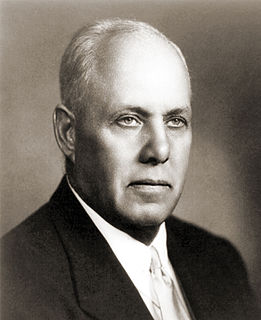A Quote by Sam Brownback
As the Cold War melts into history, our first concern should be the preservation and extension of human rights and democracy.
Related Quotes
I feel we have to begin standing our ground in the places we love. I think that we have to demand that concern for the land, concern for the Earth, and this extension of community that we've been speaking of, is not marginal - in the same way that women's rights are not marginal, in the same way that rights for children are not marginal. There is no separation between the health of human beings and the health of the land. It is all part of a compassionate view of the world.
I don't even know in American educational history classes how much of D-Day, World War II, all of that is taught versus how much of it is just ignored or looked back on with mockery or insincerity or what have you. But it was one of the most crucially important events in all of human history in terms of the preservation of freedom and liberty and the notion of democracy and things associated with it.
The Philippines and the U.S. have had a strong relationship with each other for a very long time now. We have a shared history. We have shared values, democracy, freedom, and we have been in all the wars together in modern history, the World War, Second World War, Cold War, Vietnam, Korea, now the war on terrorism.
One cannot have a trade union or a democratic election without freedom of speech, freedom of association and assembly. Without a democratic election, whereby people choose and remove their rulers, there is no method of securing human rights against the state. No democracy without human rights, no human rights without democracy, and no trade union rights without either. That is our belief; that is our creed.
Let's not use the term democracy as a play on words which is what people commonly do, using human rights as a pretext. Those people that really violate human rights [the West] violate human rights from all perspectives. Typically on the subject of human rights regarding the nations from the south and Cuba they say, "They are not democratic societies, they do not respect human rights, and they do not respect freedom of speech".
After the First World War, Germany was trying to build a democracy. Then when the Reichstag, the legislature, was burned down in 1933, this was seen as such an emergency that human rights had to be suspended. The attack on the World Trade Towers has allowed Bush and his gang to do anything. What are we to do now? I say when there's a code red, we should all run around like chickens with our heads cut off. I don't feel that we are in any great danger.
For us democracy is a question of human dignity. And human dignity is political freedom, the right to freely express opinion and the right to be allowed to criticise and form opinions. Human dignity is the right to health, work, education and social welfare. Human dignity is the right and the practical possibility to shape the future with others. These rights, the rights of democracy, are not reserved for a select group within society, they are the rights of all the people.
Our concern for human rights comes to the fore when there are gross violations of human decencies. Then other countries, including China, must recognize that this affects the American attitude towards their country. But towards what precise institutions will it evolve? I think we ought to leave something to history.
The common goal of 22 million Afro-Americans is respect as human beings, the God-given right to be a human being. Our common goal is to obtain the human rights America has been denying us. We can never get civil rights in America until our human rights are first restored. We will never be recognized as citizens there until we are first recognized as humans.
There are degrees of incompatibility, and there are more factors relevant to upholding democracy and human rights than the operation of neoliberal markets. Perhaps this point can be initially made by reference to the decline of democracy and the erosion of human rights within the United States since the 9/11 attacks.
We’ve learned that it will take more than one generation to bring about change. The fight for civil rights has developed into a broader concern for human rights, and that encompasses a great many people and countries. Those of us who live in a democracy have a responsibility to be the voice for those whose voices are stilled.


































